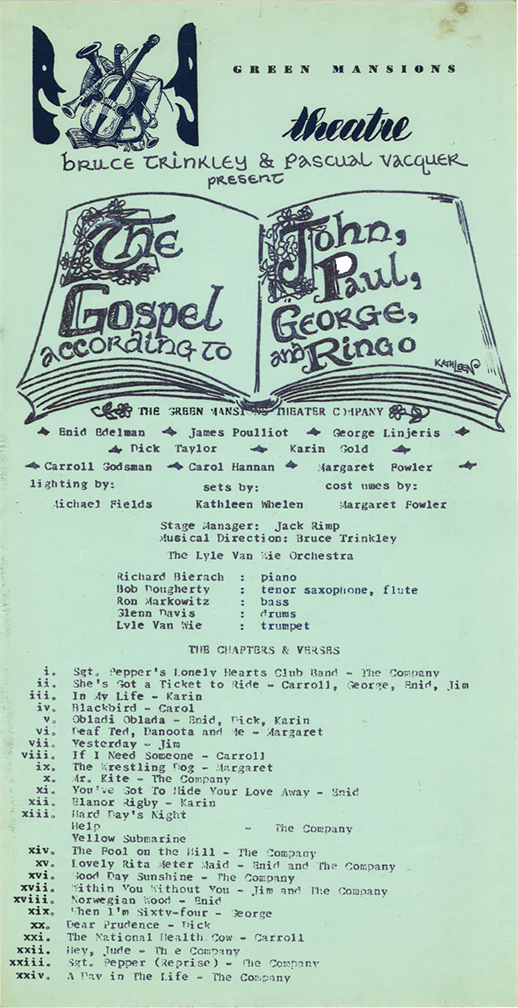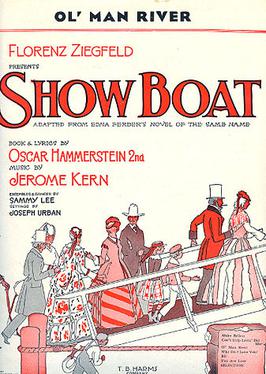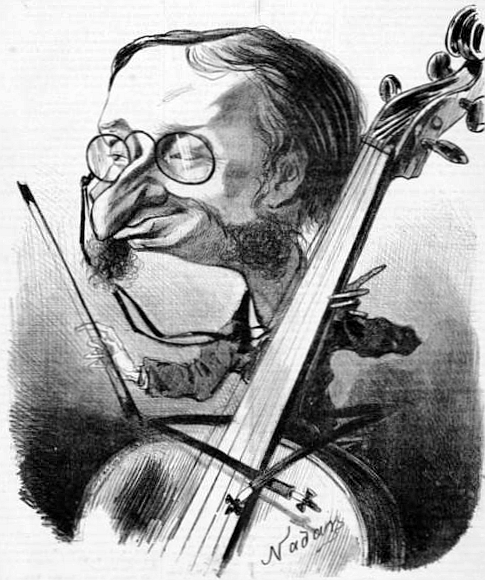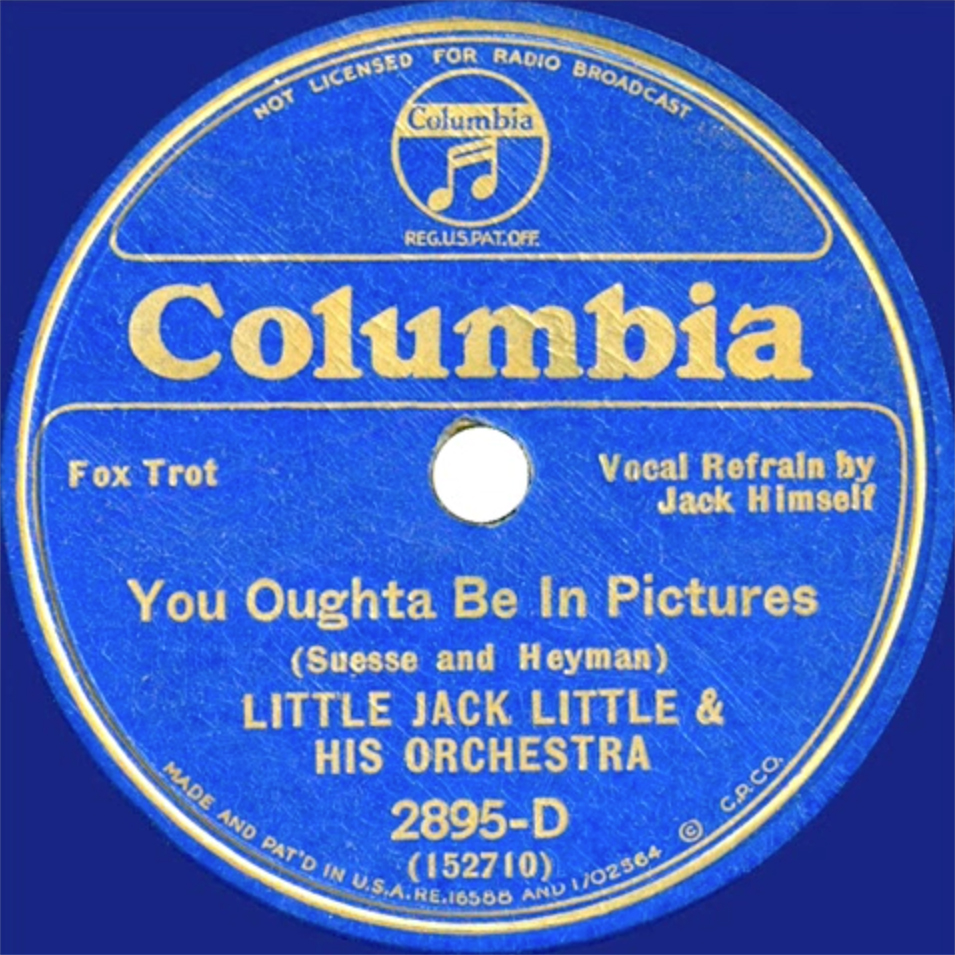Contact the composer to review scores.

The Gospel According to John, Paul, George and Ringo
A revue of music by The Beatles, for singers, chorus and rock band.
Directed by Pascual Vaquer (1942-2006). Green Mansions Summer Theatre, Warrensburg, NY. 1970.
During the summer after graduating from Palos Verdes High School, and then for summer breaks during my freshman and sophomore years at Columbia, I ushered at the Hollywood Bowl. Besides the great symphony nights with the Hollywood Bowl Symphony (aka the Los Angeles Philharmonic), I had the great good fortune to usher for The Beatles premiere at the Bowl on August 23,1964. I saw The Beatles, but never heard a note of music since the audience consisted entirely of 13-14 year old girls who screamed non-stop for the entire concert. But I had already come to love and appreciate their music, and it was a joy to create a revue for the Green Mansions audiences.

Gershwin Revisited
A revue of the music of George Gershwin (1898-1937) for singers and chamber orchestra.
Directed by Garland Wright (1946-1998). Penn State Festival Theatre, Playhouse Theatre. July 29-31, August 2-6, 1977. With Sheila McCarr, soprano; Cathy Brewer-Moore, mezzo-soprano; Patricia McKay, mezzo-soprano; David De Berry, tenor; and Steve James, baritone.
From 1970 to 1995 I served as Music Director and Conductor of the Festival of American Theatre, later known as Penn State Centre Stage. Doug Cook, the Artistic Director and Producer, and I were committed to producing the finest works of American musical theatre. As we examined the theatre works of George Gershwin we came to the conclusion that a revue featuring the songs of Gershwin would be the best way to celebrate his music. The production was to be directed by Garland Wright, who had scored such a success with his brilliant staging of Jerome Moross’ The Golden Apple in the summer of 1976. So Garland and I collaborated on fashioning a revue of the music of this giant of American music, George Gershwin. It was a great project and audiences loved the show, especially with the wonderful cast we had in place and with Garland’s deft and nimble direction.

The Song Is Kern (Can’t Help Lovin’ Dat Kern)
A revue of the music of Jerome Kern (1885-1945), for five singers and chamber orchestra. Compiled by Neal Kenyon and Bruce Trinkley.
Directed by Neal Kenyon (1929-2008). Penn State Festival Theatre, Playhouse Theatre. July 24-27, 29-31; August 1-3, 5-10,1980. With Margaret Benczak, soprano; Tanny McDonald, soprano; Velma Belle Anstadt, soprano; Bud Nease, tenor; and Richard Ryder, baritone.
Asolo State Theatre, Florida, 1984. Centre Stage, 1988.
Festival Theatre was slated to produce Kern and Hammerstein’s Show Boat in the summer of 1979, with Garland Wright directing. We had the production team lined up and had a brilliant cast in place. But then the Rodgers and Hammerstein organization pulled the rights to the show since a touring production was going to play in Altoona in the fall, and the producers did not want competition for their performances. We turned to Kurt Weill’s The Threepenny Opera as a substitute(!) A year later, we produced another revue, this time featuring the music of Jerome Kern. We got to present many of the great songs from Show Boat along with other classic tunes from the film and Broadway scores of Kern. And we had another terrific cast for the show.

The Island of Tulipatan Operetta (1868) with music by Jacques Offenbach (1819-1880).
Original French libretto by Henri Chivot and Alfred Duru.
English translation by Suzanne Roy and Bruce Trinkley. Score and translation available by contacting the collaborators.
Two-act operetta arranged for flute, 2 violins, viola, violoncello, and piano.
Directed by Helen Manfull. Penn State Opera Workshop, 1981.
Listen to overture and duet, performed by the Light Opera of New York.
Cast
Cacatois XXII, Duke of Tulipatan Lyric Tenor
Alexis, his son Soprano
Romboidal, Great Seneshal Buffo Tenor
Theodorine, his wife Mezzo Soprano
Hermosa, their daughter Tenor
Soldiers, subjects
Synopsis
Cacatois, Duke of Tulipatan, is anticipating the wedding of his son Alexis to Hermosa, the daughter of his advisor Romboidal. Cacatois however does not know that Alexis is in fact his daughter, born during his absence and raised by his wife as the male crown prince. But Romboidal knows about the deceit. However his wife Theodorine also has reasons to avert the marriage: her husband does not know that their daughter Hermosa is in truth a son who, in order to prevent his conscription in the army, was brought up by Theodorine as a girl.
But he young couple have already fallen in love with each other, each being deceived about the sex of the other. And this does not change when the cross-gender role-playing comes to light. Now there is nothing to stop the marriage and everyone rejoices, especially the parents who will soon be grandparents to the heir to the throne of Tulipatan.
A Town Is Born by Jack Yaeger (1906-1984). Orchestrations of folksongs for chamber orchestra for an original musical based on the early history and naming of Bellefonte, PA told in song and story.
Project for the Performing Arts, Bellefonte Elementary School. March 11-12, 18-19, 1983.

Lens and Ear A revue based on the history of photography, for five singers and piano (with one original song) to celebrate the 10th Anniversary of The History of Photography Journal.
Commission by Heinz Henisch (1922-2006), founder of the Journal, for the Institute for the Arts and Humanistic Studies.
Produced by the Penn State Opera Workshop, Suzanne Roy and Bruce Trinkley, directors, 1983.
Contact the collaborators to view the text and music. Listen to Little Jack Little and His Orchestra sing and play You Oughta Be in Pictures.
You Oughta Be in Pictures from the Broadway Revue "Ziegfield Follies Of 1934" Lyrics: Edward Heyman. Music: Dana Suesse
Professor of Physics Heinz Henisch was also a scholar of the history of photography, and had a prize collection of items relating to that history. He had founded The History of Photography Journal in 1973, and he approached Suzy Roy and me about creating a theatre production with the Penn State Opera Workshop using some of the songs and other materials he had collected over the years. The punning title was hit upon early in the project - with apologies to Will Shakespeare and Antony! We fashioned a two-part entertainment, the first part being a musical comedy revue of songs and texts, and the second a production of The Czar Has His Photograph Taken, a 1927 comic opera by Kurt Weill (1900-1950) with a libretto by Georg Kaiser. The opera was a singular challenge for our singers, but we all learned a great deal about producing and performing the European music of Weill.
Incidental Music (partial listing)
Contact the composer to review scores.
Midsummer Night’s Dream by William Shakespeare.
Richard Edelman, director. Woodstock Playhouse, Woodstock, NY 1999.
Much Ado about Nothing by William Shakespeare.
Richard Edelman, director. Shakespeare on the Sound, Rowayton, Connecticut July 1996.
Thieves’ Carnival by Jean Anouihl. For solo saxophone.
Richard Edelman, director. Penn State Department of Theatre 1978.
The Lower Depths by Nikolai Gogol.
John Shearin (1944-2019) director. Penn State Department of Theatre 1973.
The Mutilated by Tennessee Williams.
Susan Gregg (1944-2009) director. Penn State Department of Theatre 1973.
The Duchess of Malfi by John Webster.
Richard Edelman, director. PSU Department of Theatre 1972.
Serjeant Musgrave’s Dance by John Arden.
Fred Orner, director. Penn State Department of Theatre 1972.
The Sport of My Mad Mother by Ann Jellicoe.
Kelly Yeaton (1911-2005), director. Penn State Department of Theatre 1971.
Amphitryon 38 by Jean Giraudoux.
Archie Smith (1918-2004), director. Penn State Department of Theatre 1971.
The Three Sisters by Anton Chekhov.
Richard Edelman, director. Penn State Department of Theatre 1971.
Hamlet by William Shakespeare.
Al Hyslop, director. Columbia Players. Wollman Auditorium. March 10-13, 1966.
(Al Hyslop is not credited in the program since he was probably in violation of union rules for directing a non-union production. At the time he was the director of Sesame Street for CBS.)